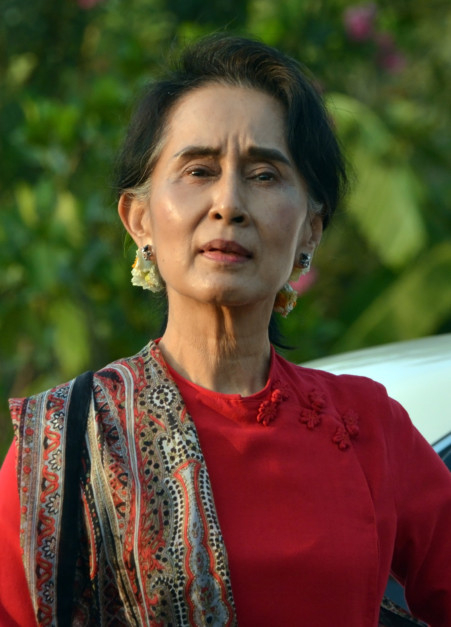
Good luck Aung San Suu Kyi! The hardest part still lies ahead. Such a message might sound exaggerated, even inappropriate, when you think that this woman spent 15 years under house arrest, having always shown tremendous determination against the junta’s generals. Her fight has indeed paid off at last, as she has gained the paradoxical support of the military, who finally and rather unexpectedly decided to let Myanmar move forward on the path toward unprecedented political reforms. But it’s also true that this is the moment that new roadblocks might start to appear after this internationally renowned figure came to power on April 1.
Suu Kyi, known as “The Lady”, is surrounded by an aura that virtually no other world leader has, and the Myanmarese people’s expectations are high. Perhaps too high. What is happening in Myanmar right now is reminiscent of the “Obamania” that hit the United States after Barack Obama won the 2008 presidential election. And as such, it risks provoking its own share of disillusions and frustrations.
Even though she could not become president herself — the Constitution barred her because her children are British citizens — Suu Kyi will still lead the government. The new President, Htin Kyaw, is one of her close friends and is expected to follow her orders.
Initially, The Lady was supposed to act as Minister for Foreign Affairs, Education, Electricity and Energy, as well as leading the President’s Office. A portfolio that amounted to a “Super Ministry” more powerful than the rest, thus giving her a prime minister-like role. Finally, on April 4, she gave up Energy and Education, but took on the job as the president’s spokeswoman.
Could the 1991 Nobel Peace Prize winner be losing touch with the real world? At 70, how will she physically and psychologically manage to deal with so many important issues and rise up to the challenges facing one of Asia’s poorest countries, marred by more than half-a-century of dictatorship and endless internal wars?
Those close to her say that it’ll take an iron lady to put her party, the National League for Democracy (NLD), in order. Many among her opponents and some of her disciples highlight Suu Kyi’s autocratic temperament.
Like other Asian women of power, all heiresses or widows of murdered charismatic leaders, she hasn’t prepared her legacy, nor has she favoured the emergence inside her party of future leaders capable of taking up the torch.
It was nearly 28 years ago that Burmese troops fired their machine guns on the protesters in Yangon, ultimately propelling Aung San Suu Kyi to the helm of a pro-democracy movement. She was of course her father’s daughter. General Aung San, the tutelary figure of the Myanmarese independence movement, was killed in his office in July 1947 by a commando group bankrolled by one of his rivals. That was a few months before the British occupier’s Union Jack ceased to wave above Myanmar.
Nobody can deny that “The Lady” has gained a moral rigor and an acute sense of her country’s destiny. One of her fellow students at Oxford, Anne Pasternak Slater, a niece of Boris Pasternak (who wrote the 1957 novel Doctor Zhivago), describes her as a person of “touching naivety and genuine innocence,” who nonetheless has an “uptight” personality.
In 1990, after her first liberation, she had become more mature, and was under no illusions regarding the path before her, anticipating with lucidity how hard the fight would be. “It’s rather normal for authoritarian regimes to be uncompromising for long periods of time,” she admitted at the time in a Thai newspaper, Nation. “You just need to keep trying harder.”
Without a doubt, she has always shown remarkable perseverance, but the task before her remains formidable. She’ll need to negotiate with the ethnic guerrilla groups that are still fighting against the Burmese army. She’ll have to find common ground with the Chinese, formerly allied to the junta, and who shamelessly covet her country’s natural resources.
She’ll also have to continue economic reforms in a corrupted business environment in which skirting the law for one’s personal gain is accepted practice. There’s also the drug and jade trafficking, and the fight against poverty, in a country where 70 per cent of the population are farmers, the vast majority of whom still use wood to cook.
Rising interreligious conflicts between Buddhists and Muslims is also a major threat to stability. And last but not the least, Suu Kyi will need to define a modus vivendi with an almighty military that still controls the most important ministries: defence, interior and borders.
In the 1990s, answering an American congressman who asked about her vision for Myanmar, should she ever rise to power, she said: “It isn’t my vision. I’ll be happy to be a leader with symbolic power. I’m not Myanmar.”
After all this time, everything leads us to believe that as years went by, Aung San Suu Kyi developed with her country and her people the same sort of relationship that Charles de Gaulle had with France and the French. The way she’s led her party, and the way she could lead “her” government, acting as an unbendable teacher, unquestioned by lawmakers or partners who fear and worship her at the same time, is a strength that could become a weakness. In the meantime, she’s become the incarnation of Myanmar. That may actually make the challenge even harder.
— Worldcrunch/New York Times News Service
Bruno Philip writes for Le Monde.








